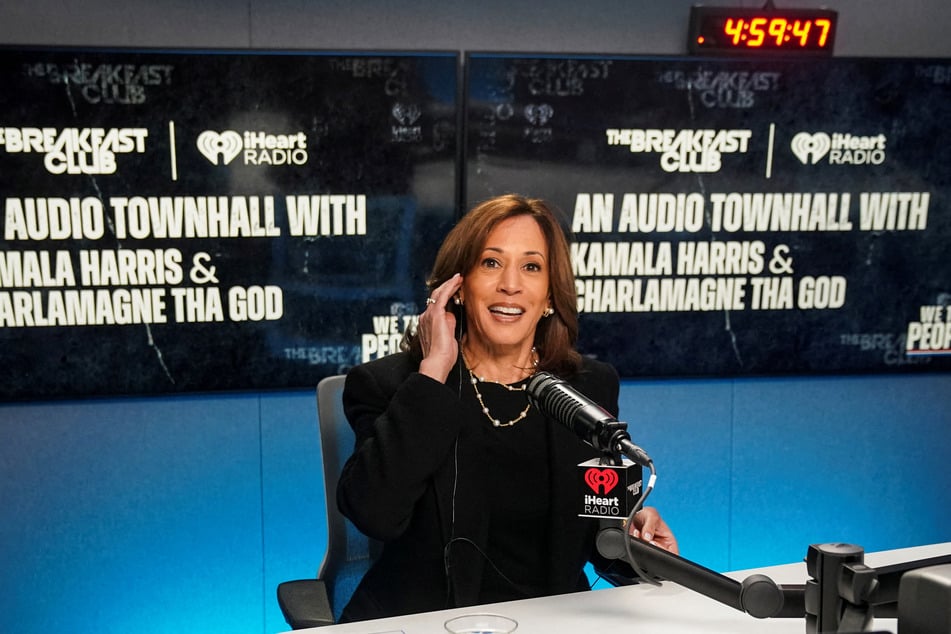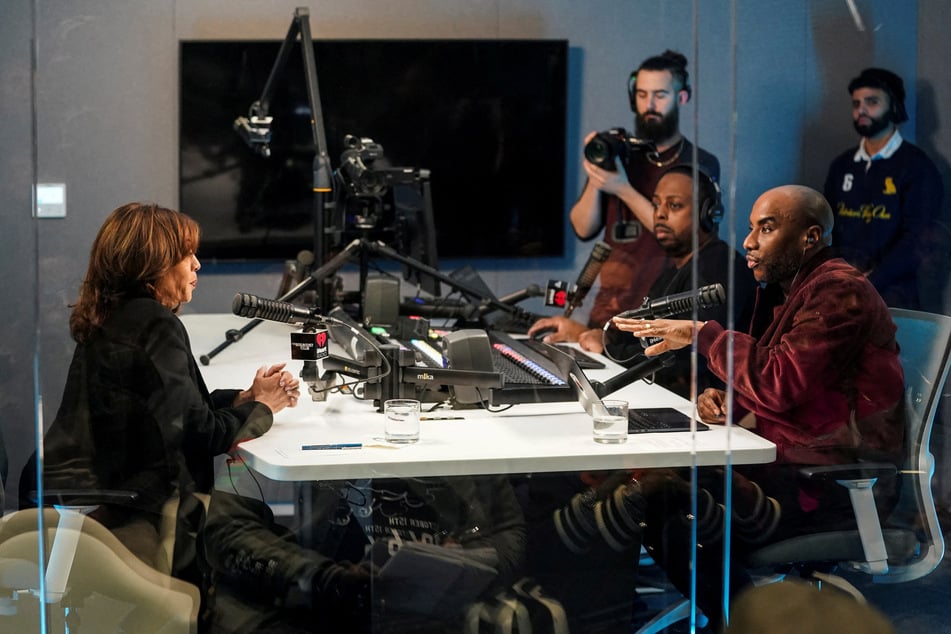Kamala Harris sidesteps reparations question in Detroit town hall
Detroit, Michigan - Vice President Kamala Harris once again declined to get specific about reparations in a town hall with prominent radio personality Charlamagne Tha God.

"On the point of reparations, it has to be studied. There's no question about that, and I've been very clear about that position," the Democratic nominee said in a live radio town hall on Tuesday.
The answer came in response to a question posed by New Era Detroit founder Isaiah "Zeek" Williams on the extent to which Harris would prioritize reparations for Black Americans.
"It's understood that you are running for president for all people of America. Asking for specifics for Black communities doesn't mean don't do for others, but Black Americans are heavily asked to vote Democrat in every election for over half a century with very little in return. What are your plans to address these very important issues and change that narrative?" Williams had asked.
"Yes, I am running to be a present for all Americans," Harris responded. "That being said, I do have clear eyes about the disparities that exist and the context in which they exist, meaning history."
The vice president did not elaborate on the steps she would take to realize a reparations study, or what that process would entail in her view.
Harris then pivoted to discussion of her Opportunity Agenda for Black Men, which makes no mention of reparations. She acknowledged that many of the proposed policies, such as bringing down the costs of housing and increasing access to capital for small business owners, would benefit all communities.
Kamala Harris remains vague on reparations ahead of November election

Since accepting the 2024 Democratic nomination, Harris has declined to say whether she will create federal reparations commission by executive order.
The 2024 Democratic Party Platform expressed support for a "study of reparations and the continuing impacts of slavery," but excluded language in support of executive action.
The president does not need congressional approval in order to create an HR 40-style reparations commission. The body of experts would be tasked with developing a comprehensive policy blueprint to address past and present harms.
The right to remedy for gross human rights violations is anchored in international law. In 2022, the United Nations Committee on the Elimination of Racial Discrimination urged the US government to pass HR 40 and "take the appropriate measures towards the establishment of such a commission to study and develop reparation proposals for people of African Descent, including issuing an executive order."
In an interview last month, the vice president said she believes reparative justice should be a matter for Congress. She did not utter the word "reparations" a single time in her response.
Cover photo: REUTERS

